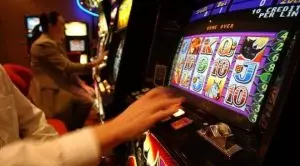 A recent survey carried out by the Gambling Treatment and Research Clinic focused on studying the impact of the coronavirus pandemic on Australians’ gambling participation has found a significant reduction in local residents’ gambling during the lockdown period. The research, however, found that about 1 in 10 people increased the frequency of their gambling.
A recent survey carried out by the Gambling Treatment and Research Clinic focused on studying the impact of the coronavirus pandemic on Australians’ gambling participation has found a significant reduction in local residents’ gambling during the lockdown period. The research, however, found that about 1 in 10 people increased the frequency of their gambling.
A study of the University of Sydney has revealed that the majority of local gamblers reduced the number of times they gambled during the first Covid-19 shutdown in the country, but most of them said they planned to get back to their previous gambling habits as soon as the lockdown measures were lifted. As explained by Sally Gainsbury, the study’s lead Associate Professor, the initial results of the research were surprising, as other studies had shown an increase in gambling participation rates.
The Gambling Treatment and Research Clinic and the Technology Addiction Team of the Brain and Mind Centre joined forces and carried out an online survey in May 2020. The researchers further revealed they intend to continue with the study in August and November 2020 in order to examine the ongoing effects of the reopening of Australian gambling venues.
As shared by the co-director of the Gambling Treatment and Research Clinic, Associate Professor Sally Gainsbury, the preliminary results of the research showed that the shutdown of gambling venues across the country and the cancellation of the major sporting events not only in Australia but in a global scale were followed by a decline in the overall gambling frequency, including for online gambling. Still, online gambling volumes were less impacted and local residents who increased their online gambling were more likely to suffer gambling-related harm, coronavirus-related financial difficulties and stress.
Most Survey Participants Say They Gambled Less Frequently during Covid-19 Lockdown
 A total of 764 individuals aged 18 to 82 who had gambled in the past 12 months took part in the online research. According to the results of the survey, almost three-fourths of them (about 75%) gambled less frequently because of the coronavirus lockdown, and the average monthly spending on gambling activities was reduced by over 50%.
A total of 764 individuals aged 18 to 82 who had gambled in the past 12 months took part in the online research. According to the results of the survey, almost three-fourths of them (about 75%) gambled less frequently because of the coronavirus lockdown, and the average monthly spending on gambling activities was reduced by over 50%.
Apart from that, gambling participation rates of people, who had been experiencing problem gambling behaviour, declined, with 60% of these respondents saying that they gambled less frequently. Still, gambling expenditure of approximately 25% of the survey’s respondents increased. As mentioned above, higher psychological distress and the financial difficulties experienced by individuals because of the Coronavirus pandemic appear to be associated with an increase in gambling expenditure. These factors, however, seem to have not affected gambling frequency.
The most significant increase in gambling expenditure was reported in the individuals aged 18 to 29, while the average monthly gambling spend declined from AU$450 before the Covid-19 shutdown to about AU$200.
Associate Professor Gainsbury explained that the study found major policy implications in both the immediate and long-term effect of the lockdown on the gambling industry, especially considering the fact that some people benefitted from the reduced availability of gambling. According to her, the lockdown imposed on the industry to prevent the further spread of the Covid-19 infection had mostly a positive impact when it comes to Australians’ gambling habits and gambling participation.
- Author


